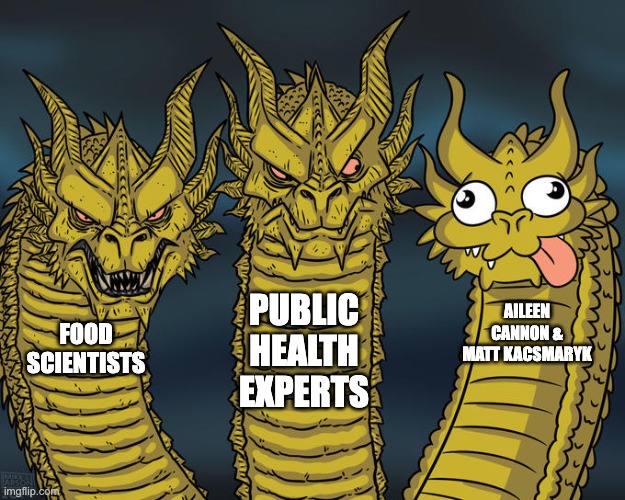John Roberts Says Judges Should Decide How Much Rat Poison Is Too Much For Your Hot Dogs
The Supreme Court overruling Chevron fulfills every lawyer's delusion: that they're smarter than real doctors and scientists.

(Photo by Alex Wong/Getty Images)
The Supreme Court overruled Chevron this morning, tossing four decades of precedent and gutting the orderly administration of public policy from regulating carcinogenic particulates to keeping rotten meat off your shelves. In its place, Chief Justice John Roberts wrote that the real experts on deciding if a toxin dumped in the water supply constitutes a dangerous threat or “new and improved taste!” are law school graduates.
Don’t you feel safer already? Why shouldn’t public health be run by the people who dropped out of pre-med because they failed Orgo?

How Savvy Lawyers Build Their Law Firm Rate Sheet
For non-lawyers, when Congress writes statutes that say, for example, “hey, maybe we should have an agency that protects against poisonous food additives,” they don’t actually list every chemical imaginable because they can’t know what someone is going to invent down the road, but they know a government agency could hire scientists who clock new inventions and can figure out which fall into a broad category of bad stuff. In the Chevron decision, the Supreme Court ruled that judges should begin from the assumption that the agency is likely right about what is and is not banned under those broad grants of power from Congress.
Today, the Supreme Court decided to instead give that power to federal judges.
Perhaps most fundamentally, Chevron’s presumption is misguided because agencies have no special competence in resolving statutory ambiguities. Courts do.
This is one of the dumbest collections of words in judicial history. Or more succinctly “Institutional Dunning-Kruger.”
Sponsored

How To Build And Manage Your Law Firm Rate Sheet

Not All Legal AI Is Created Equal


Trust The Process: How To Build And Manage Workflows In Law Firms

How To Build And Manage Your Law Firm Rate Sheet
Putting aside that the “statutory ambiguities” in these cases are actually scientific or otherwise highly technical ambiguities — whether “chemical, physical, and biological integrity of the Nation’s waters” covers a specific chemical — the agencies are also much better positioned to interpret the text of the statutes. Agencies are staffed by the same sorts of people who draft, testify about, or lobby for the statutes in question. In some cases they’re literally the same people. Judges are decidedly not those people.
So who should be trusted to interpret what constitutes a dangerous food additive or safe pharmaceutical?

For a lesson in how bonkers it can get, consider the case of Kathryn Mizelle, an associate only just removed from her clerkship that Trump rammed onto the federal judge in his final days. When charged with interpreting the “ambiguity” over whether or not the CDC could issue a mask mandate under its authority to impose sanitation measures to “prevent the spread of communicable disease,” Mizelle ruled that “sanitation” means “measures that clean something, not ones that keep something clean.” Her basis for this decision was a review of dictionaries from the 1940s that used the word sanitation to mean “trash collection.” No… seriously.
The dumbest law school grads in the country are now in charge of science.
Sponsored

How Savvy Lawyers Build Their Law Firm Rate Sheet

A Law Firm Checklist For Successful Transaction Management

It’s a particularly baffling move given that the Chief knows full well that the judiciary has an acute forum shopping problem. If this Supreme Court Term is a pop song, its chorus is “the Fifth Circuit is wrong.” While the Fifth Circuit isn’t getting completely shut out, decision after decision has bruised and battered the Fifth Circuit for botching basic legal concepts. And, often, these opinions sprung from district judges like Kacsmaryk (the mifepristone case) or Doughty (the “government can’t talk to social media” case) who sit alone in outpost courthouses allowing right-wing activists to file cases with a 1-in-1 chance of securing a judge who is not only conservative but committed to blowing off long-standing precedent to further partisan goals.
To be clear, these are the judges who are about to be flooded with claims about every regulation under the sun. Knowing that the Supreme Court’s docket was just a mess of “no, no, you idiots, that’s not how this works,” turning over the keys to the administrative state to these guys specifically seems… less than wise.
Doing so after explicitly writing the words “agencies have no special competence in resolving statutory ambiguities. Courts do” is just irresponsible.
Earlier: Mask Mandate Struck Down Because ‘Sanitation’ Doesn’t Mean ‘Keeping Things Clean’ For… Reasons
Chief Justice Roberts Tried To Save The Credibility Of The Judiciary, But Some Judges Just Want To Watch The World Burn
 Joe Patrice is a senior editor at Above the Law and co-host of Thinking Like A Lawyer. Feel free to email any tips, questions, or comments. Follow him on Twitter if you’re interested in law, politics, and a healthy dose of college sports news. Joe also serves as a Managing Director at RPN Executive Search.
Joe Patrice is a senior editor at Above the Law and co-host of Thinking Like A Lawyer. Feel free to email any tips, questions, or comments. Follow him on Twitter if you’re interested in law, politics, and a healthy dose of college sports news. Joe also serves as a Managing Director at RPN Executive Search.







